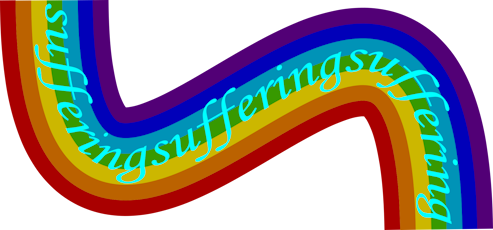

Definitions,
Values,
DJ's Rights, 7 Stages,
Alternative Providers,
CINDEA Recognition,
Why use Services?
Expectations,
Web of Facets,
Advantages of a DM,
CINDEA Recognition,
Philosophy in Practice

Final
Affairs,
Advance Directives & Representation/Proxy,
Dementia
History,
Why Consider It,
Basics, Videos,
Physical
Care,
6 Shroud Patterns,
DJ's Remains
By My Own Heart & Hand
Home Funerals, Greening Death, Children & Deathing Rites
Various forms
of
ecological disposition

National
& Provincial
National
& Provincial
National
& Provincial
U.S.A., U.K.,
etc.
for Adults & Children

Articles & Updates


Definitions,
Values,
DJ's Rights, 7 Stages,
Alternative Providers,
CINDEA Recognition,
Why use Services?
Expectations,
Web of Facets,
Advantages of a DM,
CINDEA Recognition,
Philosophy in Practice

Final
Affairs,
Advance Directives & Representation/Proxy,
Dementia
History,
Why Consider It,
Basics, Videos,
Physical
Care,
6 Shroud Patterns,
DJ's Remains
Various forms
of
ecological disposition
By My Own Heart & Hand
home funerals, Greening Death, Children, and Deathing Rites

National
& Provincial
National
& Provincial
National
& Provincial
U.S.A., U.K.,
etc.
for
Adults & Children

Articles & Updates
|
|
|

|

|
Rethinking
the Language of Suffering
in End-of-Life Choices
This blog is not about MAiD
(Medical
Aid in Dying) itself, but rather
the issue of the wording we use for 'end
of life' states. In Canadian
MAiD, one must have a terminal condition
or 'intolerable suffering' in order to
qualify. Actually, the language
now is "Grievous and irremediable
medical condition"; but 'grievous'
means "characterized by severe pain,
suffering, or sorrow"
— so pretty much the same
as 'intolerable'.
|
The
Limitations of "Suffering"
My
issue is with the word 'suffering'
which is still in common usage for 'end of life'
conditions. Since those with purely mental
or psychological difficulties don't qualify for
MAiD as yet, one has to presume that 'suffering'
refers to physical suffering in MAiD assessments.
This usage of the word makes sense in a historical
context, when medical options for managing pain
were far more limited. However, advancements
in palliative care mean that many people, nearing
the end of life, are not in constant or ‘intolerable’
physical agony. Instead, they experience
something less tangible but equally impacting
their lives: the psychological and existential
challenges of prolonged life.
For those like my 90-year-old mother, the issue
was not pain, but what has been labeled 'brain
and body frailty'. Her physical and
cognitive functionality was limited, but her emotional
and psychological distress stemmed from a loss
of what she considered 'quality of life'. She
was not suffering so much in the traditional sense;
but the exhaustion, monotony, and perceived meaninglessness
of her days weigh heavily on her. That could
be considered a psychological suffering;
but to date, that is not sufficient in itself
to qualify for MAiD.
This distinction is crucial, yet our current language
doesn't adequately capture it. For
many, 'suffering' implies torment or misery. But
what about those who simply feel 'tired' of living?
Who wake up each day —
as one friend in their 90s told me — asking,
"What the h*** am I doing still here?"
Expanding
the Vocabulary
To have meaningful conversations about end-of-life
decisions, we need language that reflects these
broader realities. While 'suffering
may resonate for some, it does not encompass the
experiences of all who wish to hasten their deaths.
One alternative might be 'existential distress';
a term already used in some medical and philosophical
contexts to describe feelings of meaninglessness,
futility, or profound emotional exhaustion.
This phrase acknowledges the psychological and
emotional dimensions of end-of-life experiences
without conflating them with physical suffering.
Another possibility is to focus on concepts like
'loss of autonomy' or 'decline in quality of life'. These
phrases recognize that what many people fear most
is not pain, but the loss of agency and identity
that can accompany advanced age or severe illness
— and especially dementia.
The problem with all of these options is that
they require a multiple-word phrase — which
is more formal; and as such, will not get used
in common-speak
.
Why Words Matter
The words we use shape how we think about end-of-life
options, and how society views those choices.
If we limit the conversation to 'suffering',
we risk excluding individuals whose struggles
are no less valid simply because they are not
based on physical pain.
Expanding our vocabulary allows us to honor the
diverse realities of aging and dying — and
notably the reality of extended aging that didn't
exist for most people before the 20th century.
It creates space for conversations about
autonomy, dignity, and the right to decide when
life is no longer worth living — not because
of unbearable suffering, but because of a deeply
personal sense that one's time has come.
So — what word can adequately describe the
meanings above, other than 'suffering'?
Or do we need to change the meaning of suffering
— notably to its mid-14th century meaning
'the patient's enduring of pain, inconvenience,
loss, etc.";
(my bolding).
If you have suggestions, please send
them to contact@cindea.ca.
Blessings
June
10,2025 Pashta MaryMoon
By My Own Heart
and Hand teacher
Common-speak is the non-formal language that
is used in everyday conversation.
|



Last
updated June 2023 © CINDEA
(To use more than a brief extract, please
contact us
for permission.)
|
|
|
|
|







